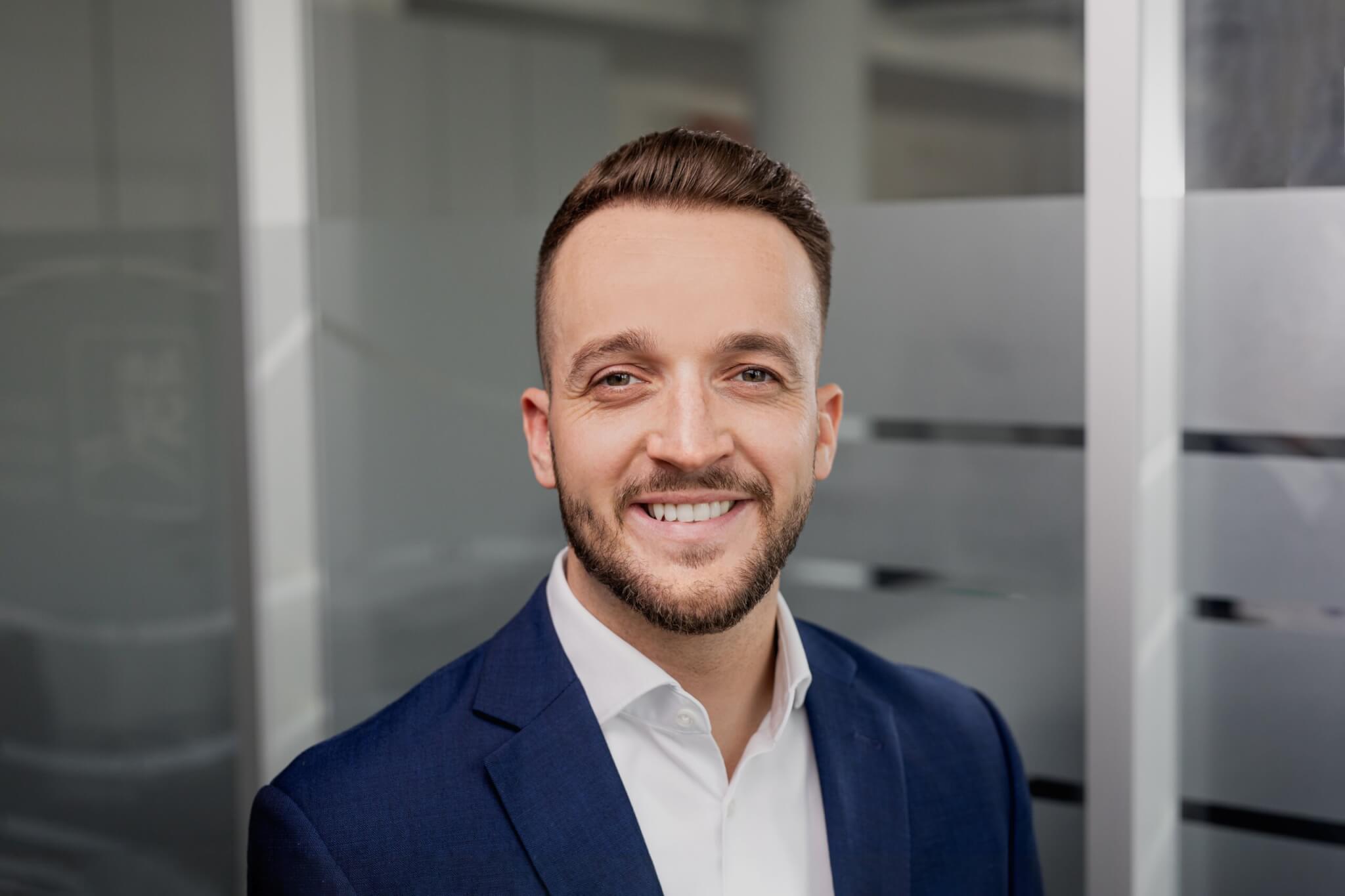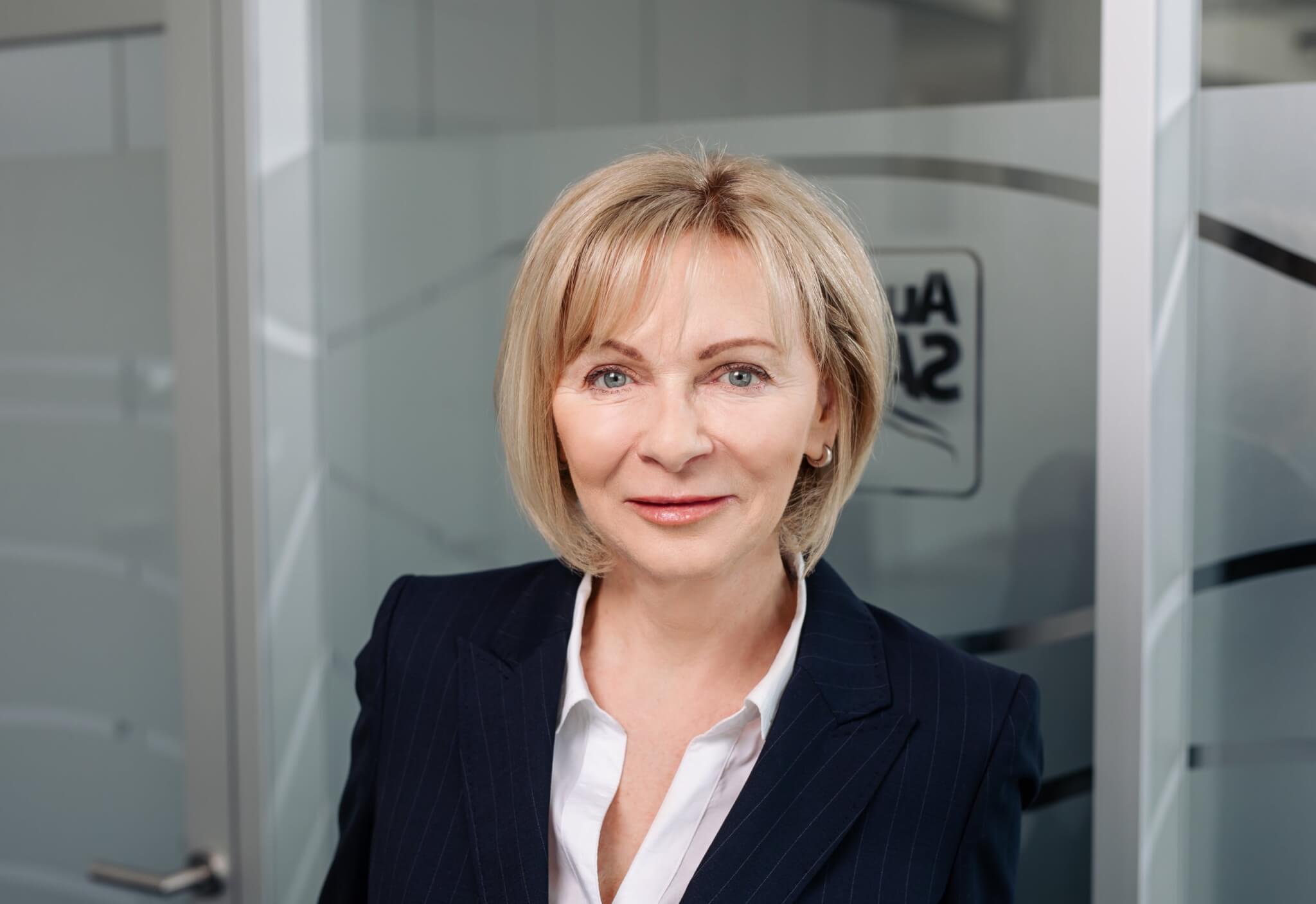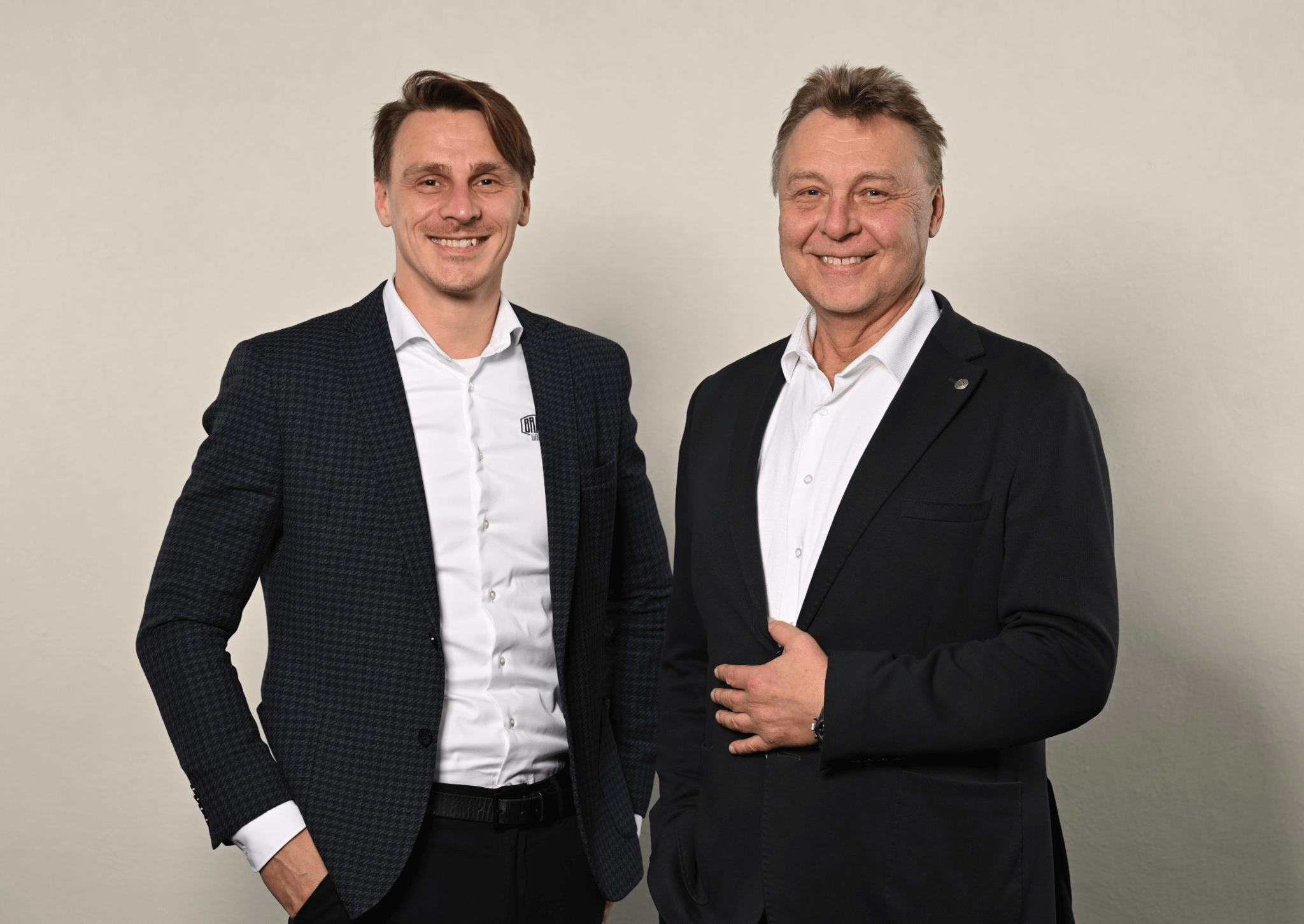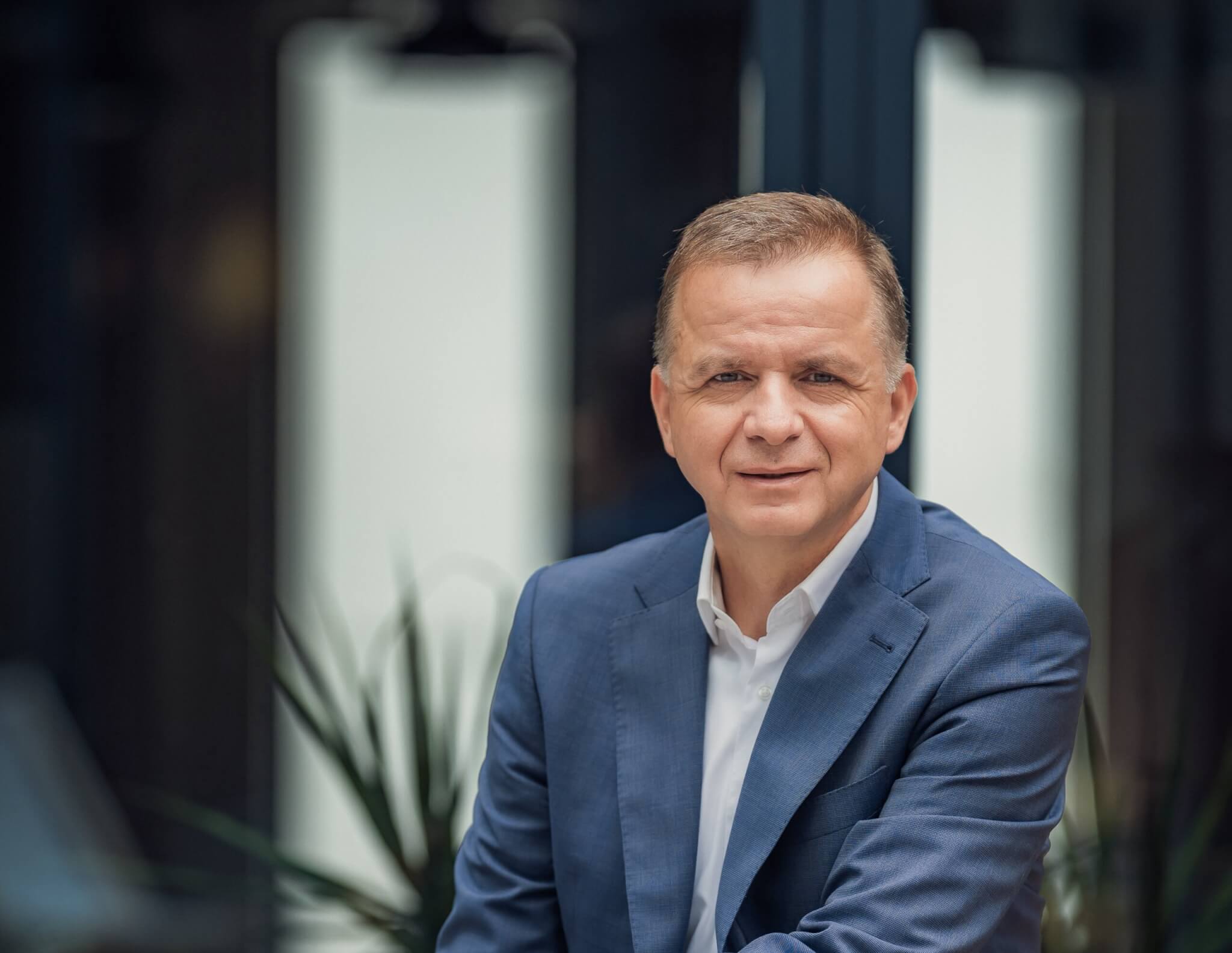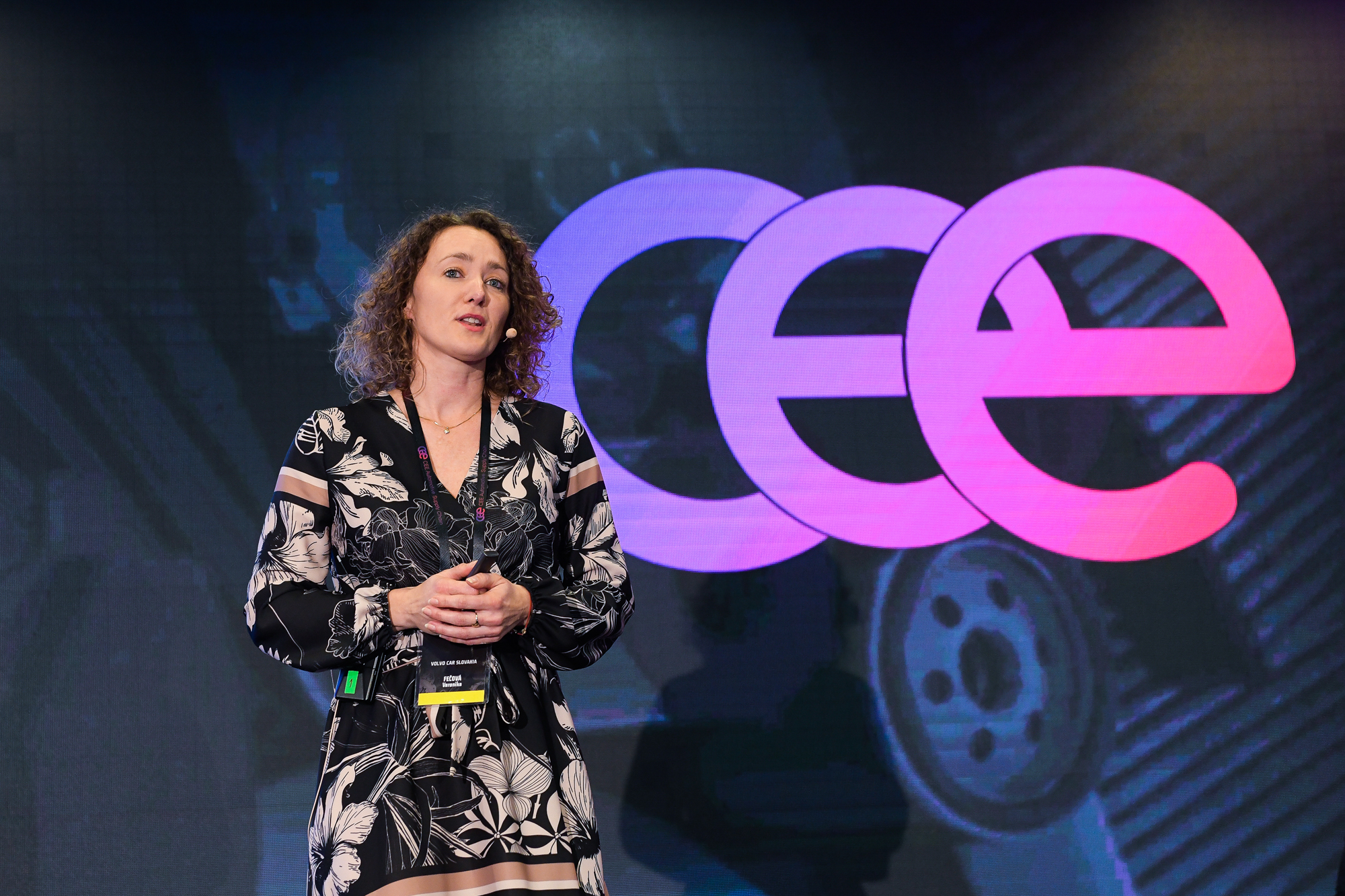Tawesco was established by spinning off from Tatra in 1995, but in the media it remains in the shadow of Tatra to this day. Margita Rejchrtová has been its head for six years and says that exclusive dependence on the heavy truck manufacturer is a thing of the past. Tawesco is mainly fed by other customers. Without parts from its moulding plant, for example, no Škoda would run. Automotive orders account for less than half of turnover and follow the development of the automotive sector. “New car models are generally declining on the market, and some parts that were produced for a new model are being used in other models for cost-saving reasons,” says Margita Rejchrtová, one of the factors influencing Tawesco’s production.
Tawesco is an engineering company with key importance for a number of customers such as Škoda Auto or Tatra Trucks. Yet it remains almost unknown to the general public. It appears in the media almost exclusively in connection with its owner, the PROMET GROUP, or with Tatra. Please explain at the outset what the relationship between these companies is.
The PROMET GROUP has been the 100% owner of Tawesco since 2011 and Tatra is a customer of its production. But it is also the company from which the company emerged when the production of press tools was spun off in 1995. Later, a press shop was added to the tool shop and finally, in 2004, we bought the then welding operations from Tatra.
Today, Tawesco is a key member of the PROMET GROUP.
What does the name Tawesco actually mean?
Tawesco is a compound of the English words Tatra, Welding meaning welding, Stamping meaning stamping and Company. Stamping and welding, tooling and jig making, heavy weldments, assembly and custom design – this is what Tawesco’s business is today.
There is still a lot of potential in what we are doing
Tawesco, the company you are responsible for, is also not just one company.
Yes, it is. The production of Tawesco in Kopřivnice is complemented by the production of our subsidiaries Tawesco Automotive in Úvaly u Prahy and Pečky in Central Bohemia, plus Stecomtry in Nový Jičín. All these companies belong to the engineering division of Promet.
Kopřivnice-based Tawesco is the flagship company, focusing on the production of press tools and welding fixtures, stampings and weldments mainly for the automotive industry, but also for agriculture, forestry and handling equipment.
Tawesco Automotive produces stamped and spot welded parts for the automotive industry, for both car and truck manufacturers. The main customer of the company’s production is Škoda Auto. They share orders with Tawesco in Kopřivnice according to their workload, logistical advantage or technological processing.
Stecomtra is a manufacturer of chassis frames, trailers and components for truck trailers, including surface treatment, painting and final assembly. Customers include Schwarzmüller.
By combining our activities, a unique combination of production processes is created that offers a complete solution for various types of parts for assembly into vehicles, machinery and other equipment.
What part of your production are piece orders and what part is mass production?
It depends on the customer and the industry. If we take a customer such as Skoda Auto, for example, the production of its press tools is of course piece production, but for production such as mouldings and weldments, for example window frames, we produce series of over 100,000 pieces per year, because we supply for all its models.
So Tawesco is very flexible. We used to do smaller series for Tatra, around 1,500 pieces, depending on the volume of production. But we have been able to respond to orders of ten units.
Today, for example, we supply medium-sized batches of 800 to 2,000 pieces for the world’s leading agricultural equipment manufacturer John Deere, and similar numbers for manufacturers of forklift trucks or the construction of forest felling machines that we supply to Finland.
How are small batches produced? Do you have a special line for each?
We produce them on mechanical presses. It’s planning intensive, but it’s the most efficient. In addition, we have invested in a hydraulic press, which we use for these smaller volumes and where thicker material is used or slower forming of material is needed to extrude deep draws. Typical production on these presses are parts for material handling equipment, such as Bobcat excavators.
“Tatra is important to us, but it is not a customer we depend on.”
What proportion of your turnover is accounted for by automotive supplies?
It’s 48 percent. We have diversified our customer portfolio significantly over the last ten years.
You’ve already mentioned some important customers, such as Škoda Auto. Can you name other major customers?
From the automotive industry, we also have Audi, Porsche, Volkswagen and Iveco, and of course Tatra, and from suppliers, for example Magna Steyer, Inalfa and Benteler. Outside the automotive industry, we supply agricultural equipment manufacturers such as John Deere, Doosan Bobcat or Kion. We have now won a large order from Jungheinrich, a manufacturer of forklift trucks.
How important a client is Tatra for you today?
When I started at Tawescu twenty years ago, deliveries to Tatra represented about 30 percent. Today it’s eight to nine. Tatra is so important, but it’s certainly not a customer we depend on. We supply them with the necessary parts for Tatra cars and we will continue to supply them.

Automotive supplies currently account for less than half of Tawesco’s turnover. Margita Rejchrtová is betting on a broader portfolio – in addition to Škoda Auto, they also supply Audi, Porsche, John Deere and Jungheinrich. | Photo: Tawesco
Are you looking more outside the automotive sector now? There’s a lot of talk about the defence industry.
Because we supply part of our production to Tatra, some percentage of it goes to the defence industry today.
Of course, we are looking for new customers, but not exclusively in the defence industry. We recently presented our owners with a new five-year strategy, which we are building on our areas of competence, that is, supplying products to our welding, stamping and tooling plants. We still see great potential there. Tawesco is a very unique company that combines under one roof the production of stamping, welding and the production of tools and jigs. We are really the market leader in Europe in this, I don’t know of any similar competitors.
To give you an idea, our tool room is the second largest in the country and one of the largest in Europe after Skoda. These are often very complex press tools, both in terms of dimensional accuracy and in terms of workmanship for surface audits. Some very complex and large tools are made in cooperation with our customers, i.e. with car manufacturers, while other times we process finished sets of these tools directly on their lines.
We can also offer some services that are rather exceptional in Europe. We can make a moulding up to six millimetres thick, which is thicker than what is used in the automotive industry, and we can also weld it. We call these products pressed weldments, and we supply them to companies like Kion in Stříbro, which manufactures extendable and hand-guided trolleys. This competence has taken us a long way forward.
We are trying to expand our customer portfolio in the heavy welding sector. I am very pleased that we have managed to acquire, for example, the Danish company Hydrema, to which we will soon start supplying cabs.
But, as I said, we also have customers in agriculture, handling equipment and forestry, where we are trying to attract new partners. We are also looking at the energy sector.
Who are your competitors in Europe?
It is difficult to say. By being in more areas, we have more competitors, someone different in each area. But nobody is as complex as we are.
Orders reflect the fact that carmakers are cutting back
The market, especially the automotive market, is changing dramatically. Are you registering this? How does it affect you?
Of course, the market is changing and we have to react to it. One of the recent trends is that the number of new car models is decreasing and some parts that were produced for a new model are being used in other models for cost-saving reasons. For us, for example, this means that the space for the production of press tools is shrinking. In response to this, some machine tools that were intended for piece production are now also being oriented towards series production, because we need series machining for our welding shop. And on our test presses in the tool room we are helping ourselves in pressing some small batches. So we’re trying to optimize the capacity of equipment that was previously designed exclusively for piece production. We are also focusing more on jig production. In addition to press tools, we also make welding fixtures in the tool room for companies such as Iveco and Škoda Transportation.
I assume the advent of electric mobility doesn’t affect you in any way.
By being a supplier of moulded parts, it doesn’t – except for what I’ve already said: that fewer models are being produced. On the contrary, we are adding some new parts for plug-in hybrids.
Are you registering any other changes, new customer requests?
Yes, there are requests for more complexity of supply towards painted or assembly parts. We are happy about that because that is one of our values: to be as customer-friendly as possible.
Based on customer demand for specific products, we are now also planning to work with a major Indian partner. It will involve the supply of complex welded assemblies for the automotive industry. However, we do not want to disclose the details yet.
“Customers today demand greater complexity.”
What results did Tawesco report last year?
We only have unaudited results so far. Within Tawesco we have sales of around three billion crowns and the unaudited EBITDA should be around 248 million crowns. It is roughly at the same level as last year.
What is the outlook for this year?
I estimate that we will replicate last year. The volume of orders from some customers is decreasing, we feel it for example in forklift trucks or in agriculture in general.
I have already talked about the general trend in the automotive industry. We are happy that Skoda is doing well, which is a very important customer for us. Besides stampings and welded assemblies, we make for them, for example, stamping tools for making side skirts, hoods, fenders and other stampings that are in the car.
We also supply batches to Audi or Porsche.
No interest in expensive green steel yet
The basic production material for you is steel. Where do you get it from?
We get half of our press steel from South Korea. Fifteen years ago, we started working with a toolmaker there, and we started importing steel in 2019. I have to say that at the beginning, our fellow pressmen were very sceptical about this, because until then we were taking one hundred percent of our material from European mills. But after the first deliveries and the first tests, they were delighted with the quality.
Is it worth it to ship steel halfway around the world?
For us, yes. The transport costs are offset by the high quality of the coils we take. We have absolutely minimal complaints. Plus, we never run into delivery problems because the company always keeps the volume we need. The other fifty per cent of the steel is still sourced from European mills, partly directly from them and partly via cutting centres where we take the shaped sections.
Of course, we are always looking at other places to import from, for example Turkey or China.
“We import half of our steel from South Korea.”
Is there no supplier in the Czech Republic that would satisfy you?
We get some materials for our heavy welding plant from Liberty. They’re not suitable for automotive applications. Nobody in the Czech Republic makes the ones we need.
Back to Korean steel. At the end of last year we issued a press release that Hyundai Steel had chosen your company as the first partner in Europe to introduce so-called green steel to the European market. What exactly is this about?
Already in September, the first shipment of steel produced by the EAF pre-melting method arrived in Kopřivnice from South Korea, which we will test in our mill. They call it “green”, we call it “reduced”. Basically, this steel is produced using electric furnaces, so it produces much less CO2. However, it must be taken into account that this steel, which has the same properties as the ‘traditional’ steel, is considerably more expensive, at around EUR 200 per tonne.
Do you already offer products made from it to customers? Is there any interest?
No such request has come in yet, but we are ready.
China is a big competitor, but it can also be a customer
When you look at what is happening on the European and global market, especially how the industry you supply to is developing, how would you describe the current situation?
We’ve been to two trade shows this year, in Las Vegas at the CES technology show and at the Shanghai Auto Show. Both were great experiences. The speed of development is breathtaking, especially when it comes to the Chinese automotive industry. It is certain that Chinese car companies will go to the European market – and our aim will be to supply them.
Tawesco is sourcing steel from South Korea and you mentioned that you are also looking at China to see if they would continue to ship material from there. But if it was an option to bring in material from China, why not also bring in finished semi-finished products, the kind of production that you produce? Isn’t that competition a risk?
In which area. It can certainly threaten us and historically we have been threatened by the production of press tools in Asia, whether it is China, Korea, Taiwan and nowadays Vietnam. We’ve had to deal with that. The covid was a turning point when the customers, the European car companies, started to want the tools to be made in Europe – but at Asian prices. So as long as we keep prices low, we will supply.
When it comes to supplying large stamped parts and complex weldments, we are not threatened by Chinese competition there. Shipping would be extremely expensive and nobody would want to pay that.
Where Chinese competition has already noticeably affected us is in the supply of agricultural and material handling equipment. As I have already mentioned, there has been a drop in demand for deliveries for forklift trucks or for small excavators. China has started to import these into Europe in their entirety.

Large stamped parts and technically demanding weldments remain a stable mainstay of Tawesco’s business – unlike smaller parts, they are not worth importing from Asia due to high transport costs and complex logistics. Thanks to this, the company stays ahead of low-cost competitors. | Photo: Tawesco
The war in Ukraine meant the loss of many customers for us
As far as automotive customers are concerned, for how long do you have contracted deliveries? And overall, how far in advance do you have your order books filled now?
In terms of automotive, typically it’s five to six years of supply. But as the life of models gets longer, orders may also get a few years longer.
The situation is similar in heavy weldments. Supplies for some forklift manufacturers or for John Deere are contracted for five years.
As far as the tool room is concerned, which accounts for about ten percent of the company’s turnover, we do not have a contract there, of course. But based on our customers’ long-term projects, we have an outlook two to three years ahead, so we know that about 30 percent of the capacity is filled. The rest is the job of the sales department, to find more orders.
As far as Tatra is concerned, that is more or less custom production as well.
You mentioned deliveries for John Deere. Do you deliver directly to them in the US? Are you affected by any tariffs on exports to the US?
We supply to European plants, which in turn supply European customers. So we are not affected by the US tariffs, we are just assessing the risk for now.
But what has affected us a lot is the conflict in Ukraine. Ukraine and Russia have been important customers of our agricultural machinery. This represented a 20 percent drop in orders for us, which we had to replace with something. Fortunately, we were able to do that.
“We are negatively affected by the current overall uncertainty and instability and Chinese competition.”
What do you consider to be the biggest problem for your production right now?
Of course, like all other companies, we are negatively affected by the current general uncertainty and instability. And then the aforementioned Chinese competition. We have to work hard to achieve the required margins.
You’ve been CEO for six years. If you had to say what has been the most difficult period for you in that time, what would it be? Perhaps covid?
No no, on the contrary, I am proud of what we achieved during the covid. We didn’t stop the company for a day. There were some disruptions in the automotive industry, but fortunately Tatra was still running and there were other customer requests – and we managed to satisfy them all.
For me, the most difficult period of my life was the year 2023, when Mr Matera (René Matera, a prominent businessman from Ostrava, founder and owner of PROMET GROUP holding, i.e. Tawesca – ed.) died. We were very close both humanly and professionally. It wasn’t that we suddenly didn’t know what to do in the company, because it was clear that a new generation would gradually take over the company. But it was difficult humanly.
Today PROMET GROUP has a new CEO, Denisa Materova, with whom I also have a good relationship. But of course everything is different.
I’m a professional, I don’t comment on what’s going on in the group
When you mentioned the departure of Mr Matera, then “various things started happening” related to the property transfers between Promet and Tatra, and the group is not completely calm to this day. How do you feel this in your company?
Yes, there are various discussions among shareholders, but I am not part of them. As a professional, I don’t let this affect me in my role. Tawesco is a supplier to Tatra and we do everything we can to satisfy our obligations. I don’t want to comment any further at this time.
Is it true that you are to become a member of Tatra’s board of directors?
Yes – if both parties agree. I will be happy to take part in the development of Tatra, because I know that Tatra was and still is a matter of heart for the Matera family. And I too have been associated with Tatra since its beginnings.
The change in Tatra’s shareholder structure is also part of the developments in the last year. PROMET GROUP has agreed to sell half of its stake in Tatra to STV INVEST, one of the key players in the Czech defence industry. Does this mean anything to you?
It could mean more opportunities for us – deliveries to another partner in an industry that is growing. But I can’t say more about that yet, I’m yet to meet with my colleagues from STV.
PROMET GROUP has also recently established a joint venture with SKH SMC from the Indian Krishna Group, which – according to the available information – will deal with the development, testing and production of pressed and welded assemblies made of steel and aluminium. You have already mentioned in a previous answer a potential cooperation with an Indian company, but you do not want to talk about it in detail yet. Is it about this company?
Yes. This cooperation should be one of the ways to respond to changes in the market and to demands for complexity of supply. This Indian company has a similar production programme to ours, they also supply the automotive industry, they also have their own tool room, but they also produce cabs. I don’t want to give the full details yet because everything is still being worked out at the moment. But I’m looking forward to working with them, because it will mean another shift for the company. Every new customer enriches us. As new orders come in, the competence of our technical staff grows.
Filipino welders are a valuable asset, we will recruit more
How many people does Tawesco employ in total and in which occupational groups?
The entire Tawesco Group employs just over 1,000 people. In addition to the press shop, welding shop and tool room, we also have our own design department, with our design engineers working with engineers in our friendly tool room in Korea.
Welding is certainly one of our major competencies, and welders are therefore important to us. Although we are trying to robotize extensively, we will still have a need for manual welding. This mainly concerns the custom production of Tatra frames, of which we do about 130 per month. We are counting on that to continue, so welders are very important to us.

The Tawesco press plant has undergone investments worth two billion crowns over the last ten years, and production for the automotive industry is now fully robotic. Nevertheless, manual work is still irreplaceable – the company therefore not only trains welders in its own centre, but has also newly strengthened them with qualified colleagues from the Philippines. | Photo: Tawesco
Aren’t welders a “scarce commodity”?
We’ve got over a hundred of them now, we’d need 120, 130. Last year, we got some reinforcements, we recruited 12 welders from the Philippines. We have them as our core staff and we are very happy with them. They’re nice, hardworking, and they speak English. Now we’re going to have another wave this summer and we’re going to hire more colleagues from the Philippines.
As for getting new welders in our area, it’s not easy, because other companies in the region need them too.
That’s why we have also set up a training centre in our company to continuously train our welders, and every welder who joins us goes through it. Customer requirements change and we need to respond to this.
“We have already invested two billion crowns in the mill since 2011.”
You need welders because a significant amount of work has to be done by hand, as you said. So how are you doing with technology in general? How automated and robotic is your production?
As far as the press shop is concerned, we have invested about one billion crowns there in the last five years, since 2011, when we became part of the PROMET GROUP, it was two billion. The first billion went more or less just to keep up with the competition, because until then there was no significant investment in the press shop. The second billion, however, went towards expanding our competences. We bought a hydraulic press and started supplying pressed weldments. We invested in a 3D laser for cutting. We are trying to robotize everything that can be robotized, including the heavy welding shop.
Production for automotive is completely robotic. We have invested about 100 million crowns in robotic workplaces just in connection with the new Kodiaq and the new Superb.
As far as the tool room is concerned, the tooling work cannot be robotized; there the proportion of manual work is still significant, among other things because the tools have to be hand-polished.
You once mentioned in an interview that you would like to put the Czech Republic among the European leaders in pressing and welding. How far along are you on that path?
I think we are already at the top today. There are three major companies competing for a number of contracts on the European market and one of them is Tawesco.
Of course, there is always room for improvement. I have mentioned several times the complexity that we want to expand. We are already succeeding. With a new customer, you always start in some small volumes and on some simple parts and gradually move to the more complex. That’s how we started with John Deere, for example, to whom we initially supplied only simple weldments, and now we are supplying really very complex weldments. Similarly with Kion, for whom we now do the entire forklift chassis, which is very technically demanding. By establishing ourselves in these deliveries, we have won other large orders from Jungheinrich.
When it comes to toolmaking, we are also at the top of the game there. It is a very demanding discipline where we are within the tolerances of tenths of millimetres.
Finally, a personal question: How does the Czech language you studied go together with what you do today?
It’s a paradox, isn’t it. I’m not really the technical type at all. That’s why I have a number of competent colleagues in the company for technical details.
I went to language school and then I wanted to study English. The only way that was possible then was at the Faculty of Arts. So I studied English and Czech. I liked Czech as well, but I never wanted to teach, I imagined I would make a living as a translator. After my studies I went abroad and when I came back I wanted to work somewhere in production. I was attracted by the dynamics that are in a factory. English opened the door for me to do business. That’s also how I started at Tawescu twenty years ago.
I value good relationships and I try to build them with our customers. In my role, it’s even so that I have to have friendly relationships not only with my customers but also with my competitors. For example, if we don’t get a moulding job but a competitor does, Tawesco can make moulding tools for that competitor. And the Czech and English language is good for building friendly relations.

Margita Rejchrtová has spent her entire professional life in manufacturing companies. She started in the sales departments of Korado and Tafonco. Since 2005 she has been working at Tawesco, where she started as a sales director. For the last six years she has been its CEO and Managing Director.
Contact
Next articles and interviews
Next articles and interviews
+ Show





